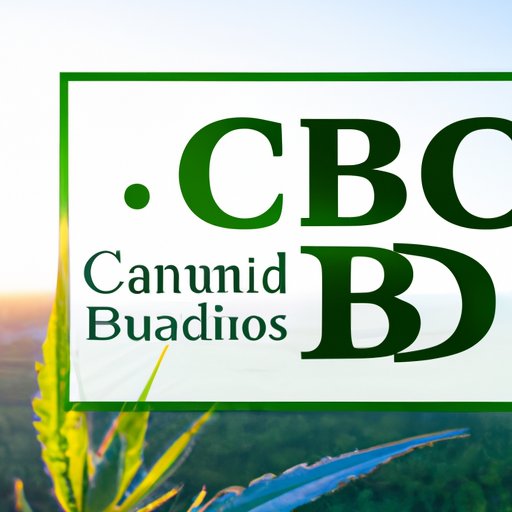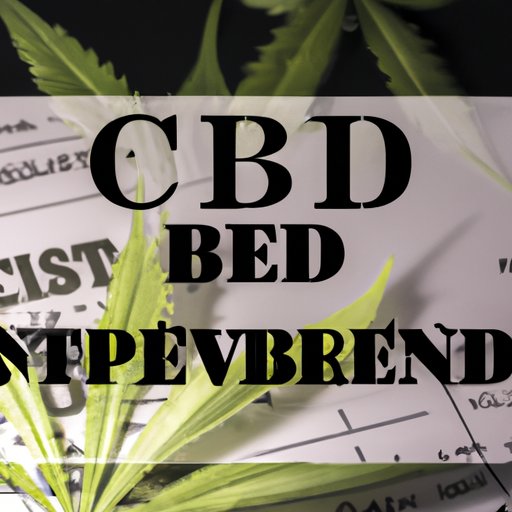Is CBD Illegal in Indiana? Clearing Up the Confusion
CBD, or cannabidiol, is a compound derived from hemp and marijuana plants that has been gaining popularity for its potential health benefits. However, confusion over CBD’s legality in Indiana has left many wondering whether it is legal or not. This article aims to provide a comprehensive overview of the legal status of CBD in Indiana, as well as guidance on navigating the state’s confusing laws. It’s important to understand the state’s legal framework before trying CBD, as it could help ensure a safe and legal experience.
The Legality of CBD in Indiana: Understanding the Confusing Laws
Indiana’s CBD laws have been in a state of flux since 2018, when the state legislature passed a law legalizing CBD for certain medical conditions. However, the federal government’s classification of hemp as a Schedule I drug under the Controlled Substances Act (CSA) complicated matters. It wasn’t until the 2018 Farm Bill that hemp was declassified as a controlled substance, paving the way for legalized hemp-derived CBD products.
Even after the Farm Bill, Indiana’s CBD laws remained confusing. While state law allowed for the sale and possession of hemp-derived CBD products, the state’s Attorney General issued an opinion stating that products containing any amount of THC, even trace amounts, were illegal. This led to the seizure of thousands of CBD products from stores and confusion among consumers and retailers alike.
Recently, however, Indiana passed a law bringing its state laws in line with the 2018 Farm Bill. The law legalized the production and sale of hemp and hemp-derived products, including CBD, as long as the products contain no more than 0.3% THC. This has provided some clarity for consumers and retailers, but confusion still remains for some, particularly with regard to the labeling and marketing of CBD products.
Navigating Indiana’s CBD Laws: What You Need to Know Before Trying CBD
Before trying CBD in Indiana, it’s important to do your due diligence to ensure that the products you are using are legal. Here are some steps to follow:
- Know the source of the CBD: Make sure the CBD is derived from hemp grown in the US, rather than marijuana plants.
- Look for third-party testing: Reputable companies will have their products tested by an independent laboratory and make the results available.
- Check the THC content: The product should contain no more than 0.3% THC, as required by state law.
- Research the retailer: Look for a retailer that has a good reputation and a clear understanding of Indiana’s CBD laws.
It’s also important to stay up-to-date on changes in Indiana’s CBD laws. Resources like the Indiana State Department of Agriculture and the Indiana Hemp Industries Association can help you stay informed.
For those with concerns about using CBD, it’s important to understand that the compound is non-intoxicating and non-addictive. Some potential side effects include drowsiness, dry mouth, and changes in appetite. CBD can also interact with certain medications, so it’s important to consult with a healthcare professional before use.
Indiana’s CBD Industry: Booming Despite Legal Uncertainty
Despite the legal gray areas surrounding CBD in Indiana, the industry is thriving. According to the Indy Star, the CBD industry in Indiana was worth $57 million in 2018 and is expected to grow to $609 million by 2025.
Industry insiders and experts attribute the growth to a number of factors, including increased awareness of CBD’s potential health benefits and the passage of the 2018 Farm Bill. They also point to Indiana’s reputation as an agriculture state, with farmers eager to embrace a new crop and innovative products like CBD-infused foods and beverages.
If Indiana were to fully legalize CBD, experts predict the industry could experience even more explosive growth. However, concerns over regulation and the impact on other industries like pharmaceuticals may keep full legalization at bay for some time.

Legalizing CBD in Indiana: Pros and Cons
The debate over whether to fully legalize CBD in Indiana is a complex one. Proponents of full legalization point to the potential economic benefits, including increased tax revenue and job creation. They also argue that it could provide greater access to CBD products for those who need them for medical reasons.
Opponents, however, point to concerns over regulation and a potential lack of oversight. They also worry that full legalization could impact the pharmaceutical industry, which has invested heavily in developing drugs derived from CBD.
Ultimately, the decision to fully legalize CBD in Indiana will likely come down to a balancing of these factors and careful consideration of how it will impact various industries and stakeholders.
Breaking Down the Confusing Language of Indiana’s CBD Laws
To truly understand Indiana’s CBD laws, it’s important to take a detailed look at the actual language of the laws. The newly passed law legalizing hemp and hemp-derived products, including CBD, can be found in Indiana Code 15-15-13. The law lays out the regulations for the production, labeling, and sale of these products.
One key aspect of the law is that it requires all hemp-derived products, including CBD, to be tested by an independent laboratory to ensure that they contain no more than 0.3% THC. Products that fail this test can be seized and destroyed by the state. The law also requires that all labeling and advertising be truthful and not misleading.
While the law provides some clarity for consumers and retailers, it’s clear that there is still some confusion and uncertainty around Indiana’s CBD laws. This is why it’s so important to stay informed and be a responsible consumer of CBD products.
Conclusion
In conclusion, while CBD’s legality in Indiana may seem confusing, there are steps you can take to ensure that the products you use are legal and safe. It’s important to stay up-to-date on changes to the state’s laws and regulations, as well as to do your own research on the products you’re considering.
The CBD industry in Indiana is booming despite the legal uncertainty, and it’s clear that there is potential for even greater growth if the state were to fully legalize CBD. However, the decision to do so must be carefully considered and take into account the needs and concerns of various stakeholders.
Ultimately, the most important thing is to be a responsible consumer and make informed choices about the products you use. By doing so, you can enjoy the potential health benefits of CBD without putting yourself in legal or physical jeopardy.
